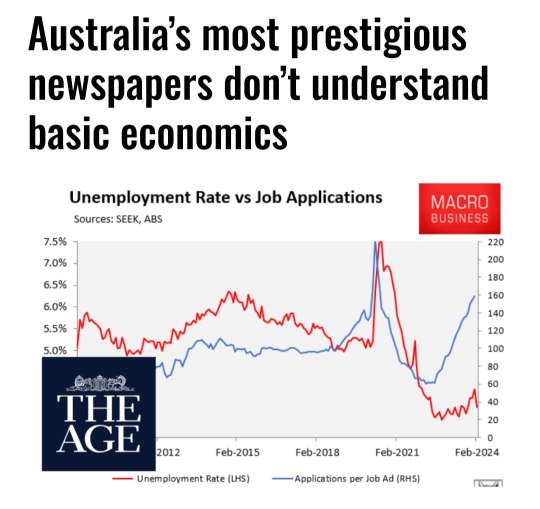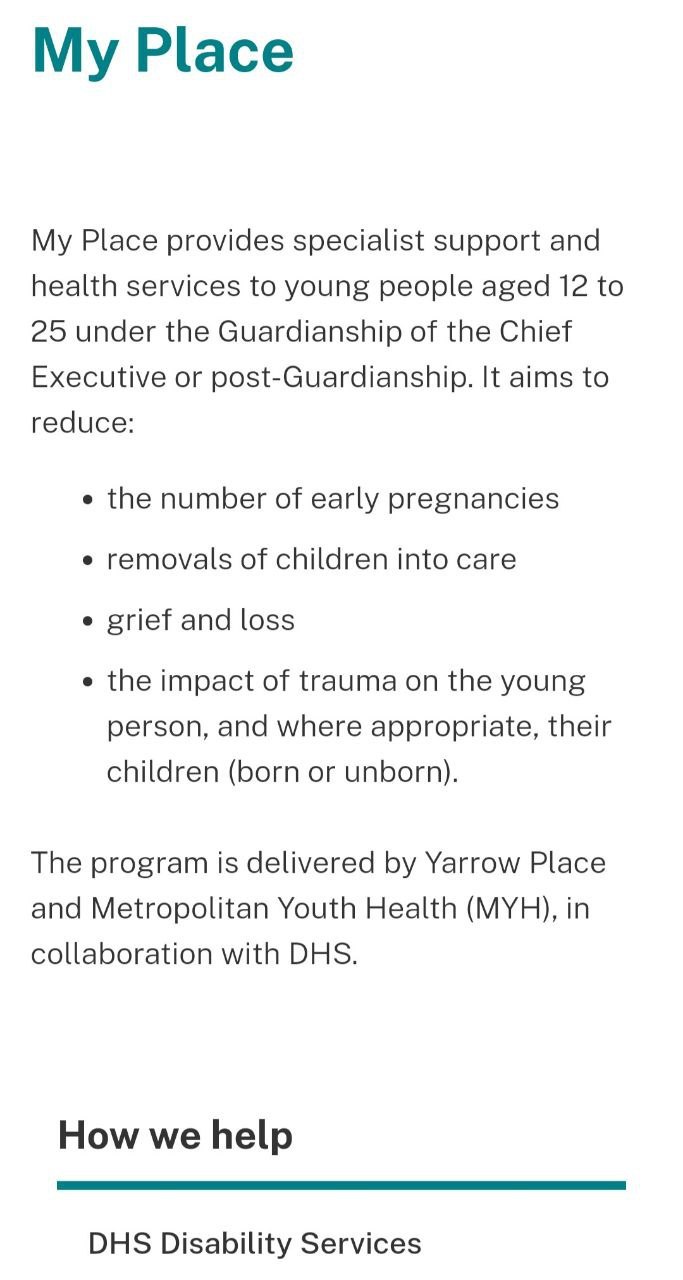#daily monitor editor
Explore tagged Tumblr posts
Text

Friends, enemies and all readers, welcome back to the Daily Bugle. It is unfortunate that we must restart our newspaper with such a tragic story. Last week, during a fight that broke out at a pro-mutant protest, leading to several injuries and the death of a 17 year old girl by the name Emily Rose Wilson. All and more will be discussed in today’s edition.
On the 19th of February, DA Rumlow announced that a mutant registration bill had passed in New York, meaning that mutants with a previous criminal record have to be monitored by the government. This is an easing of a previous bill aiming to ban individuals with the mutant x gene from participating in public life. Even despite these loosening of restrictions, several hundred mostly mutant protesters showed up to protest the bill. In response, several hundred counter-protesters also gathered outside the DA’s office, led by a group known as the Friends of Humanity. We were lucky enough to be be able to interview this group and their aims seem far from unreasonable, and deserve to be heard in the free marketplace of ideas:
“Our group is called Friends of Humanity. We stand for and to protect the rights of humans and humans alone. We are just protecting the status quo” “Families have been ripped apart. It's been happening everywhere. They show up and attack people. They ruin our property.” “Even in the face of their ignorance and resistance, I know humans need me to do what I do. I have every intention to keep doing what I'm doing. Our cause is just. We won't have what our ancestors fought for be stolen from us. We can't have what our families have been through be ignored. We gotta keep fighting the good fight” - Anonymous representative of Friends of Humanity
The Friends of Humanity may seem unjust to an outside observer, but their ideas have merit and their warnings shouldn’t be ignored. Especially after the violence that occurred last Wednesday. After a few of the more violent mutants felt their needs were not met, they took to attacking the counter-protesters who had as much right to be there as anyone. In the chaos and destruction, an innocent onlooker received third degree burns from a mutant who could control fire and died from her injuries the next day in hospital. A vigil for Miss Wilson will be taking place tomorrow at 10am at the place where she was attacked, and we invite all Daily Bugle readers to attend, to pay respects to this innocent girl who’s life was cut short. We received a statement from Miss Wilson’s parents about their daughter:
“Emily was a star, she lit up every room she was in and never let anyone feel alone or disliked. She will be missed by everyone who knew her, her kindness was something that doesn’t leave you, ever” — Katelyn Wilson, Emily Wilson’s mother
Of course, this brings up how necessary DA Rumlow’s bill was. The mutant who attacked Emily was a 19 year old named Elias Redwood, who has a previous criminal record of violence and theft. He is currently being held in police custody and is facing a trial. Perhaps, if Mr Rumlow’s bill had been able to pass without protest, criminals such as Redwood would not be walking free on the streets able cause permanent damage any time they have an emotional outburst. We at the Daily Bugle believe in mutant rights, but not at the expense of lives like Emily’s. In any case, Emily Rose Wilson will be sorely missed, and her memory lives as a constant reminder of the threats still around in modern day America.
Though while the mainstream media sleeps on this story, as it goes against their pro-mutant narrative, we at the Daily Bugle will not be silent! To join our daily newsletter comment underneath one of our posts to be added to the list. Be sure to comment your thoughts about the mutant question below, or leave an anonymous submission to get potentially featured in a later news story.
— J. Jonah Jameson
–––––––––––––––––––––––––––––––
Editor's note: Welcome back everyone. I’ve recovered from the flu and hypothermia after my landlord cut off the heating to my apartment, so I’m getting paid to edit this again… honestly I’m not surprised. Mr Jameson loves nothing more than to take tragic stories and use them to push and agenda. Miss Wilson deserves to be remembered without her death being used as an excuse for pro-mutant bigotry. And by the way, that interview with the Friends of Humanity had been very edited, so here’s the full thing. Also, the bill passing doesn’t mean it will become law, there’s still hope And to the young mutants out there who feel alone, you’re not alone. There are many of us who will fight for you, now is not the time to give in. Good luck, I think we’re all going to need it – J.E. - Lead Editor

Hey guys guess who’s back? I killed the writer’s block with fire. I tagged a buncha people I know/have seemed interested in the past. If u wanna get added to a permanent tag list pls just let me know. Also please reblog and tag other people, that helps a lot with getting this seen. Thanks so much for reading <3
Face claim for Emily Rose Wilson is Kacey Rohl
@hufflepuffavenger @thatone-midgardian @justaperi-dot @viridonia @therealquicksilver @friends-of-humanity @itzzkaylaaa @multifandomer537 @goddess-of-birds @clintbarton-thearrowguy @ghostcat58 @thebestmerc-1 @crazyinlovewithmarvel @lunamarvels @officially-reformed-capn-hydra @twoarrsandonesea @newsreporter16 @your-fav-russian-assassin
#the daily bugle#marvel roleplay#mcu rp#marvel#marvel cinematic universe#marvel rp#marvel mcu#mcu roleplay#mcu#news story
105 notes
·
View notes
Text
“Video has come out from Bucks County, Pennsylvania showing a ballot counter destroying ballots for Donald Trump and keeping Kamala Harris's ballots for counting,” an account called “Dan from Ohio” wrote in the comment section of the far-right website Gateway Pundit. “Why hasn't this man been arrested?”
But Dan is not from Ohio, and the video he mentioned is fake. He is in fact one of hundreds of inauthentic accounts posting in the unmoderated spaces of right-wing news site comment sections as part of a Russian disinformation campaign. These accounts were discovered by researchers at media watchdog NewsGuard, who shared their findings with WIRED.
“NewsGuard identified 194 users that all target the same articles, push the same pro-Russian talking points and disinformation narratives, while masquerading as disgruntled Western citizens,” the report states. The researchers found these fake accounts posting comments in four pro-Trump US publications: the Gateway Pundit, the New York Post, Breitbart, and Fox News. They were also posting similar comments in the Daily Mail, a UK tabloid, and French website Le Figaro.
“FOX News Digital’s comment sections are monitored continuously in real time by the outside company OpenWeb which services multiple media organizations,” a spokesperson for the company tells WIRED. “Comments made by fake personas and professional trolls are removed as soon as issues are brought to our attention by both OpenWeb and the additional internal oversight mechanisms we have in place.”
Breitbart replied to WIRED's request for comment in Russian: "Пожалуйста, скажите Newsguard, чтобы они пошли на хуй." In English, this means "please tell Newsguard to go fuck themselves."
The Gateway Pundit and the New York Post did not respond to a request for comment from WIRED.
“The actors behind this campaign appear to be exploiting a particularly vulnerable part of the media landscape,” McKenzie Sadeghi, the AI and foreign influence editor at NewsGuard, tells WIRED. “Comment sections designed to foster reader engagement lack robust security measures, allowing bad actors to post freely, change identities, and create the illusion of genuine grassroots campaigns rather than orchestrated propaganda.”
The disinformation narratives being pushed by these accounts are linked to Storm-1516, according to Newsguard. Storm-1516 is a Russian disinformation campaign with a history of posting fake videos to push Kremlin talking points to the West that was also connected to the release of deepfake video falsely claiming to show a whistlelbower making allegations of sexual assault against vice presidential candidate and Minnesota governor Tim Walz. (WIRED first reported that the Walz video was part of a campaign by Storm-1516. A day later, the US government confirmed WIRED’s reporting.)
Links to the video were posted by multiple accounts with names like “Disobedient Truth” and “Private Patriot” in the comment section of outlets like Breitbart and the Gateway Pundit.
“More bad news for the Dems: Breaking: Tim Walz's former student, Matthew Metro, drops a shocking allegation- claims Walz s*xually assaulted him in 1997 while Walz was his teacher at Mankato West High School,” the comments read.
The links posted in the comments came hours before the video was shared on social media platforms like X, where it racked up millions of views.
After the Bucks County video went viral, researchers quickly traced it back to Storm 1516. US intelligence agencies then confirmed Russia was behind the fake video.
Russian influence operations have, in the past, made use of comment sections to boost their narratives, including during their campaign to disrupt the 2016 elections. This is the first time this tactic has been reported as part of Russia’s efforts to disrupt the 2024 presidential election.
“Replying in threads is a tactic that can have an impact with very little investment,” Darren Linvill, codirector at Clemson University’s Media Forensics Hub, tells WIRED. “By inserting disinformation into an unrelated conversation it might be seen, even if the account being used has no followers and was just created yesterday. It also doesn't matter if the account you are using is caught and shut down because you haven't lost an investment, you can just create another account five minutes later.”
The fake comments, Newsguard found, are also then used in reports from Russian state-backed media outlets to bolster claims about how Western audiences are responding to a particular incident.
After the Trump assassination attempt in July, Tsargrad TV published an article titled “Biden's Trace in Trump's Assassination Attempt. Americans Agree with the Kremlin's Version: ‘Russians Are Right.’” The article outlined how Americans believe that the Biden administration played a part in the shooting, citing “comments to articles in Western media” as evidence.
NewsGuard’s researchers identified 104 articles in Russian state media that cited comments from Western news outlets as evidence to back up their claims between January and August of this year.
“This tactic allows bad actors to reduce the risk of detection and embed propaganda in a subtle, seemingly organic way, blending it into the casual commentary of supposed everyday Western readers,” Sadeghi said. “The repetition of the same claim across multiple formats and contexts can create a sense of familiarity that may lend the narratives an appearance of credibility.”
The network of accounts has also been used to seed other narratives, including one earlier this month where dozens of comments in the New York Post and Breitbart claimed, without evidence, that Ukrainian president Volodmyr Zelensky had used Western military aid to purchase a car that once belonged to Adolf Hitler.
That claim has been spread by the network of inauthentic websites controlled by former Florida cop John Dougan, who now lives in Moscow and runs a network of pro-Kremlin websites. Dougan’s network of websites have previously shared disinformation narratives from Storm-1516.
52 notes
·
View notes
Text
[RERUN] Crisis on Infinite Earths, issue 11: “Aftershock” (Same great universe, now 80% smaller!)

[All images are owned by DC Comics, please don’t sue me]
PREVIOUSLY ON…
A being known as the Anti-Monitor has destroyed all but 5 of the universes in existence) with a single survivor on Earth-6 (Lady Quark) and Earth-Prime (Superboy) along for the ride)

Unfortunately, the process was unstable, meaning that time has merged (meaning mammoths and futuristic aliens are among modern skyscrapers) in the areas where the Earths are merged (which are called “Warp Zones”)
The Anti-Monitor’s last three attempts to destroy the multiverse have been thwarted (at the cost of many lives, including Supergirl and Earth-1’s Flash)
The Anti-Monitor’s fourth attempt brought the battle to the Dawn of Time, where the Anti-Monitor attempted to destroy the multiverse before it began, but his efforts were thwarted by the Spectre.
…or were they? As the pair fought for control, reality shattered around them and the assembled heroes!
Now, on with our story! If you would like to read this issue, it (along with the rest of the series) has been collected in graphic novel form and is available (or can be ordered) at your favorite comic shop, bookstore, or online retailer…or on Read Comic Online.
[WARNING: Things are gonna get a bit weirder and more confusing than they’ve been to this point (and that’s saying something!) Furthermore, the jokes could be a bit thin here. I’m not certain if you’ll call that a bad thing or not]

We open on Clark Kent (Kal-L) as he wakes up from a bizarre dream. His wife Lois obviously let him sleep in…and redecorated? He heads to his “day job” as managing editor of the Daily Star. He enters his office and is about to get to work…

…when Perry White barges in and demands to know who’s in his office. That’s when Kal-L noticed Perry’s name on the office door. In barges Clark Kent (Superman) who apologizes to Perry and introduces his “Uncle Clark” before escorting Kal-L from the building.
On the top of the Daily Planet, they guess that somehow after the Spectre’s fight with the Anti-Monitor, they both were transported to Earth-1. They fly to the warp zone in New York…

…only it’s not there. What’s more, no one remembers there ever being anything weird in the area (though they do remember Supergirl’s death).
They then fly to Central City, where the Flash (who is still considered “missing”, as no one was present for his sacrifice) stored his cosmic treadmill…

…only to see the twin cities of Central City (home to Earth-1′s Flash) and Keystone City (home to Earth-2′s Flash) Sure enough, Jay Garrick (Earth-2′s Flash) and his wife Joan greet the pair. Joan doesn’t remember what happened, but Jay does. They fetch Kid Flash and start the cosmic treadmill and break through the dimensional barrier

…to a void; Earth-2 isn’t there! What’s more, Kal-L feels the void calling to him, like he belongs there…though the Flash doesn’t feel the same call!
They return before Kal-L can run to the void, and everyone reaches the same conclusion: there is only one universe now, but obviously elements of the old realities are different from the new reality…and some elements never existed!

While the four contact as many heroes as they can find to discuss the ramifications, we switch to deep space. Rip Hunter’s time sphere (carrying Hunter, Adam Strange, Captain Comet, Dolphin, Atomic Knight, and Animal Man) encounter Brainiac’s ship adrift.

They board to investigate and discover the corpse (if a robot can have a corpse) of Brainiac.
Back on Earth, many of the heroes have gathered at Titan’s Tower, where they’re all checking each others’ math to make sure everyone has put two and two together. Huntress and Earth-2′s Robin explain that they, like Kal-L, don’t exist in this “new Earth”. Superboy-Prime is shocked when he finds out his Earth never existed either (that’s what happens when your universe was written in just so it could become a victim. Just ask Lady Quark)

Suddenly, Harbinger appears (having somehow regained her powers due to the new reality) and confirms this fact, and explains that some elements of each individual earths’ histories no longer existed (though reality seems to have conformed around Earth-1 primarily. I guess DC would have lost a lot of readers if it conformed around Earth-X), meaning only the modern versions of the “duplicate” heroes (like Superman, Batman, and Wonder Woman) are part of this new reality, while heroes that share a name, but not a past (like Flash, Green Lantern, and Atom) exist alongside their younger counterparts.

Kal-L flips out at this news, as it means that he will never see his wife Lois again.

As Kal-L flies off in a streak of self-pity, we switch to the Spirit Realm, where the Spectre lies unconscious, severely weakened by his battle with the Anti-Monitor (I’m sure this will be important later)

Back on Earth, the heroes continue to compare notes. It seems the villains don’t remember the multiverse (since they weren’t at the Dawn of Time), but it seems that Power Girl (Kal-L’s cousin) is remembered. No one is sure how that works.

Suddenly, the weather turns ugly, just as it did when a universe was about to–
Uh-oh…

Earth has been pulled into the Anti-Matter universe!
…dedulcnoc eb oT
#dc comics#crisis on infinite earths#superman#the flash#kid flash#rip hunter#adam strange#captain comet#dolphin#atomic knight#animal man#brainiac#superboy#huntress#robin#spectre#fan colored glasses#i hate reruns
11 notes
·
View notes
Text
“If technocracy wins this battle and they implement it on a global basis, it will again take hundreds of years before the concept of freedom and liberty will resurface again. It will take a very long time; it won’t just come snapping back, it will not be a fade. Once they get control over the economic mechanism, they will virtually have control over life itself. They will make people of the world dance like puppets on a string.” ⁃ Patrick Wood, TN Editor.
This is a very important question. I think about it daily as the meteoric rise of scientism creates a new materialistic priest class, in whom you must put your faith and devotion.
What is Technocracy?
A scientific dictatorship, enabled by full-scale surveillance, in which an elite class of scientists and engineers manages every facet of life. Technocrats are “persons who exercise power by virtue of their technical knowledge.”
Technocracy is the Brave New World in Aldous Huxley’s 1932 novel, which was more a “I just got out of a meeting and here’s how it’s going down,” memo rather than a cautionary tale.
In this presentation about COVID-19, Dr. Lee Merritt, influenced by Patrick Wood’s writings on technocracy, shared the etymology:
Techn = skillKrat = kratos (divine personification of power)
She summed up technocracy: Data gathered on everybody in the world and fed to un-elected officials, who are smarter than everybody, and will use the information to create amazing solutions. It boils down to “power via differential knowledge,” meaning if you have knowledge that only a select few have, you can lord it over the majority of people.
The Internet and Total Surveillance
Once the possibility of a total surveillance state materialized with the inception of the Internet, technocracy became the crown jewel in the Cabal’s totalitarian New World Order agenda.
The timeline is speeding up. Their dreams of ruling the world are veering toward a terrifying reality with artificial intelligence, propaganda in everybody’s pocket, and a bazillion data points on every man, woman, and child on Earth.
Patrick Wood, the OG of technocracy research, said once we reach a scientific dictatorship society … “liberty will be a historic curiosity.”
In order to achieve this goal, the technocrats developed mass surveillance, which has only been possible in the modern age with the Internet. This is their time to act.
Smart meters on houses monitor how much energy you consume.
Credit card transactions track consumer behavior and move people away from hard currency.
Social media fills out the dossier with beliefs, names of friends and family, images, and much more.
The Affordable Care Act digitizes your medical history.
Smart gadgets—Fitbit, Oura Ring, etc.—pass all of your vital stats to central repositories.
Smartphones track where you are, what you’re doing (they can listen in), and what information you���re consuming and entertainment you are consuming.
The Internet of Things (IoT) adds more daily data. What’s in your fridge? What do you watch on TV? And even more nefarious, there are credible reports detailing how they can watch us through our TVs.
Facial recognition software and cameras monitor every square inch of public space.
Virtual assistants like Alexa monitor your every word and train people to be useless (“please machine, turn on that light … I cannot do it myself”).
Public school jams cultural Marxism down the throat of every child, while Common Core collects 400 pieces of data on every child, which is on their record for life.
5 notes
·
View notes
Text
THE DAILY BEAST
"I didn’t want to write this column, I really didn’t.
Since Thursday night I have vacillated between borderline obsession (monitoring every tweet, reading every story, phone-banking donors, reporters, and insiders) and trying to ignore the democratic world that has abruptly and rapidly come crumbling down around us.
But I was always taught that in life you cannot solve a problem you are unwilling to admit.
The major question commanding the conversation is both naive and disingenuous: How did we–the Democratic party–at a time when there is already a crisis of confidence and trust in basic democratic institutions, both affirm that skepticism for the world to see and, potentially, cost ourselves the election all in 90 minutes?
To answer this honestly, a lot of people have a lot to own up to. So first, let’s make our way into the collective confessional booth and have a chat.
First there is the “they” who concealed the truth about the president’s apparent condition. That “they” is comprised of a long and distinguished list, starting with the first family, top White House and Biden campaign staff, and likely a notable list of Democratic senators, Congress members and Cabinet officials.
They’ve been doing it for months, if not well over a year. And don’t kid yourselves, there is a lot of anger from the rank and file over it.
Second, there is the “they” who gaslit us and enabled the situation. That “they” would be the fourth estate, who I’d like to take a minute to congratulate for confirming Trump’s infamous 2016 “fake news” mantra. It’s possible the American public, whose faith in the news was already at an-all time low, will never fully recover from this. So for all of the “reporters” who appear to have found the light switch in the last few days: too little, too late. No one will ever believe that the mainstream media didn’t know this story was there. They will believe that they made a conscious decision not to report it.
Jill Abramson, former executive editor of The New York Times, embodied the issue herself in a head-spinning statement that at first blush appeared to be taking both the White House and the media to task for a massive cover-up and failure to do their jobs respectively, but in doing so outed herself and her former colleagues as complicit when she said the quiet part out loud to Semafor: “I worry that too many journalists didn’t try to get the story because they did not want to be accused of helping elect Trump. I get that…”
“I get that?” Really? You do? Well, do you get why the American public doesn’t trust the news, and believes they’re partisan? Do you get that, too?
Breaking News Alert: The media’s job is not to put its thumb on the scale—no matter their personal politics or that of their editorial boards.
Compounding the problem, ever since Thursday night’s slow-motion car crash, “they”—in this case, the Biden campaign and its inner circle—have committed a series of missteps that could best be described as professional malpractice. They believed the jaw-dropping revelations around the debate could be dismissed as “one bad night” compared to “Obama/Romney 2012” and papered over with a few scripted appearances with the aid of a teleprompter. No press questions would be answered, no unfriendly media allowed.
And then the Bidens departed for Camp David.
Within hours, a story in the New York Times painted the picture of the first family clinging to the East Wing and blaming White House staff for the debate catastrophe.
The article went further, saying that—in light of the staff’s poor performance—the family would be taking on more of an active role. Everything would be fine because the grandkids were going to start volunteering on the campaign. The president, it stated, is leaning on Hunter Biden for advice, leaving many Americans to question the president's judgment as much as they had been questioning his mental acuity.
Monday, straight from the department of horrific timing, Jill Biden, appearing to do her best Claire Underwood impression, graced the cover of Vogue, leaving top Democratic donors and operatives nationwide wide-eyed, mouths fully agape.
And amidst the greatest crisis to face the party in modern political history, the party elders have been all but absent. Neither Bill Clinton nor Barack Obama appear to be taking a leading role in ushering their successor to his come-to-Jesus moment, nor are they serving as the public face of his defense, their support muted and confined to social media.
With the Bidens dug in and the party’s institutional forces appearing to apprehensively tow the line, the only thing that could change the dynamic was numbers.
And then… polling started to trickle in.
CBS was the first significant survey out of the gate: 72 percent of Americans no longer believe the president has the mental and cognitive health to serve as president. A New Hampshire one put Trump up 2—a 12 point swing since December. Harvard/Harris put Trump up nationwide by 6 points—results that were mirrored by CNN. Leaked internal Democratic polling put Biden behind in all seven battleground states.
Suddenly elected Democrats—who were split between publicly falling in line and privately fuming—have begun to openly call for the president to leave the ticket.
So now what? Where do we go? Identify the solution. Or in this case choose between two less than ideal, realistic options.
After days of fantasy football-like jockeying, yelling out good-on-paper names that are largely unknown, untested and unvetted nationally–some of whom are not the least bit interested (Michelle Obama), others who could turn the next four months into a referendum on the state of San Francisco (Gavin Newsom)—let’s let a dose of reality set in.
Campaign finance laws don’t allow for Biden/Harris funds to be transferred to a brand new set of knighted candidates. While another duo could arguably energize the donor class, no one in their right mind would flush $240 million down the drain and start from scratch. That, this week’s polling boomlet putting Kamala as the party’s best shot to contend with Trump, and the already complicated politics of attempting to side-step the nation’s first-ever Black female VP, put to bed the question of who the party’s nominee—if it is not Joe Biden—would be.
The only realistic paths forward are either 1.) President Biden remains the nominee, and in turn—absent a seismic governmental or political event in his favor (which could happen)—Trump likely wins in November;
Or 2.) Historically unpopular Kamala Harris takes the party’s reins. In the latter scenario Harris could choose Pennsylvania Governor Josh Shapiro as her VP, putting the crucial swing state back squarely in play, hope that the historic nature of her candidacy energizes the backbone of the party, and give it a shot.
Neither is far from a sure thing. But we have reached the fork in the proverbial road.
And our deadline is not the convention. Thanks to an inconvenient quirk in Ohio’s election law, presidential tickets must be certified by Aug. 7, meaning the Democratic party has 35 days to make a choice.
Knowing the existential threat that a second Trump presidency would present compounds the recklessness and culpability of everyone involved. And there isn’t another minute to waste.
Tick. Tock."
The Daily Beast
8 notes
·
View notes
Text
Resources and Tools for Writers
Resources and Tools for Writers: A Comprehensive Guide
Writing is a beautiful and often challenging endeavor, where words become art, stories take shape, and ideas find their voice. To support the creative journey, writers have access to a vast array of resources and tools that can enhance their craft, streamline their work, and expand their knowledge. In this comprehensive guide, we'll explore the diverse resources and tools available to writers, from writing software and reference materials to writing communities and self-publishing platforms.

Writing Software and Tools
1. Word Processing Software: Word processors like Microsoft Word, Google Docs, and Scrivener are essential tools for drafting and editing your work. They offer features for formatting, spell-checking, and document organization.
2. Grammar and Editing Tools: Online grammar checkers like Grammarly and ProWritingAid help writers identify and correct grammatical errors, punctuation issues, and style inconsistencies.
3. Mind Mapping and Outlining Tools: Software like MindMeister, Scrapple, and Workflowy can help writers brainstorm, outline their work, and visualize the structure of their projects.
4. Note-Taking Apps: Apps like Evernote and OneNote are perfect for jotting down ideas, collecting research, and organizing notes on the go.
5. Writing Prompts: Websites and apps like Writing Prompts, Reedsy, and The Write Practice provide daily writing prompts and creative exercises to stimulate your imagination.
6. Writing and Word Count Tracking Tools: Tools like NaNoWriMo's word count tracker and online timers like TomatoTimer help writers set goals and monitor their progress.
7. Reference and Research Tools: Tools such as Zotero, Mendeley, and EndNote are useful for managing references, citations, and research materials.
8. Thesaurus and Dictionaries: Online thesauruses like Thesaurus.com and dictionary resources like Merriam-Webster are invaluable for finding synonyms, antonyms, and definitions.
9. Readability Checkers: Tools like Hemingway Editor and Readable.io assess the readability of your writing, helping you create content that's easy to understand.
10. Screenwriting Software: If you're a screenwriter, software like Final Draft or Celtx can assist you in formatting scripts to industry standards.
Reference Materials
1. Style Guides: Manuals like The Chicago Manual of Style, The Associated Press Stylebook, and The Modern Language Association (MLA) Handbook provide guidelines for formatting and citation.
2. Writing Guides: Books like "On Writing" by Stephen King, "Bird by Bird" by Anne Lamott, and "The Elements of Style" by Strunk and White offer invaluable writing advice and wisdom.
3. Dictionaries and Thesauruses: Traditional print dictionaries and thesauruses are still valuable reference materials, especially for writers who prefer the tactile experience of flipping through pages.
4. Writer's Market Guides: The "Writer's Market" series provides information on publishers, literary agents, and markets for various genres.
5. Grammar and Style Books: Resources like "Eats, Shoots & Leaves" by Lynne Truss and "The Elements of Eloquence" by Mark Forsyth offer in-depth exploration of grammar and style.
6. Online Blogs and Articles: Numerous writing blogs and websites, such as Writer's Digest, The Creative Penn, and The Write Life, provide articles, tips, and inspiration for writers.
Writing Communities and Workshops
1. Writing Groups: Local and online writing groups, such as Meetup, Goodreads, and Facebook writing groups, writer’s circle provide a space to share your work, receive feedback, and connect with fellow writers.
2. Writing Workshops: Many organizations and universities offer writing workshops and courses, both in-person and online. They often provide structured learning and feedback opportunities.
3. Critique Partners: Building relationships with critique partners is a valuable way to get constructive feedback on your work. Websites like Critique Circle and Scribophile can help you find critique partners.
4. Author Forums: Websites like Absolute Write Water Cooler and KBoards (for indie authors) are popular author forums where writers can ask questions, share experiences, and seek advice.
5. Writing Conferences: Attending writing conferences and book fairs can help you network with industry professionals, learn from experts, and gain insights into the publishing world.
Publishing Platforms and Self-Publishing Tools
1. Traditional Publishers: If you're pursuing traditional publishing, resources like the Writer's Market guide and QueryTracker can help you find literary agents and publishers. Confused if to go or not for traditional publishing here are 5 Reasons Why Traditionally Published Books Sell Better Than Self-Published Books
2. Self-Publishing Platforms: If you're considering self-publishing, platforms like Amazon Kindle Direct Publishing (KDP), IngramSpark, and Smashwords provide tools and guidelines for self-publishing your work.
3. Book Cover Design Tools: Software like Canva and Adobe Spark can assist with designing eye-catching book covers.
4. Formatting and Layout Services: For professionally formatted books, services like Vellum and Brave Healers Production can help you create professional interior layouts.
5. Book Marketing Tools: Social media networks are essential for book marketing and promotion.
6. Email Marketing Services: Services like Mailchimp and ConvertKit are valuable for building and maintaining a mailing list for your author newsletter.
Income and Rights Management
1. Royalty Tracking Software: Tools like BookTrakr and AuthorEarnings provide insights into book sales, royalties, and income tracking.
2. Copyright and Contracts Resources: Authors should familiarize themselves with copyright law and have legal resources for contract reviews if working with publishers.
Author Platforms and Websites
1. Author Websites: Creating a professional author website is a must. Platforms like WordPress, Wix, and Squarespace offer user-friendly website builders.
2. Blogging Platforms: Blogging can help you connect with readers and showcase your writing. WordPress and Blogger are popular blogging platforms.
3. Social Media: Building a presence on social media platforms like Twitter, Instagram, and Facebook can help you engage with your audience and promote your work.
Financial and Business Tools
1. Tax Resources: As an author, you may need to navigate complex tax matters. Tax software or the services of an accountant or tax professional can be invaluable.
2. Business Tools: Software for bookkeeping, invoicing, and project management can help authors manage their finances and business affairs effectively.
Online Writing Tools
1. Online Writing Platforms: Online platforms like Medium, Wattpad, and Vocal.Media provide opportunities to publish and share your writing with a broad online audience.
2. Collaborative Writing Tools: Tools like Google Docs and Scrivener support collaborative writing projects by enabling real-time editing and sharing. Don’t miss the 5 FREE Writing Tools Authors Must Try In 2023
Conclusion
The journey of a writer is a continuous exploration of creativity and self-discovery. The resources and tools available to writers today are as diverse as the voices and stories they bring to life. This comprehensive guide should serve as a valuable reference for writers looking to enhance their craft, navigate the publishing world, and connect with their audience. Whether you're just starting your writing journey or have been on it for years, these resources and tools are here to support your passion and help you turn your ideas into art.
7 notes
·
View notes
Text
Australia News: 24.3.24.
1.) "The Australian dream of owning your own home - Albanese style. Coming to a city near you."

2.) "Media Shame File: Journalists show their economic illiteracy daily when it comes to immigration, but even so it's worrying that the political editor of The Age doesn't seem to understand how unemployment can fall during record-high population growth."
I'd say they were fully aware of what they were doing.

3.) QLD HOMESCHOOLING CRACKDOWN ->
https://youtu.be/TudVFaYc36A
Make a submission: https://qldparlcomm.snapforms.com.au/form/eetsc---education-general-provisions-and-other-legislation-amendment-bill-2024.
It is highly likely that other governments will enact similar harsh laws if they succeed in Queensland. Do not let them.
Also "Our main points of concern:
we do not want to be restricted to using the Australian Curriculum.
reporting to EVERY area in the plan and PROVING educational progress is too much and not even required in schools.
determining if home education is in the best interest of the child is a parental right, this power doesn't belong with the Education department."
Parents should have the freedom to decide how best to educate their children because education is not a one-size-fits-all solution.
4.) NDIS - What is myplace?



"Just a heads up for all you MyPlace people. There are already trade marked companies in Australia using that name.
Be warned you may be in danger of copyright infringement and court action.
I'm telling you this because I care that you don't get sued, and also because you really should not use someone else's business name. Be original rather than just copying someone else.
The MyPlace brand in Australia is to do with Government, Monitoring, Professional Sports Sponsorship, Public Education and The NDIS. Do you really want your name involved with that?
I wouldn't.
@roobsaussieflyers."
5.) Australia Immigration ->


"Record immigration is causing a housing crisis that’s now a human catastrophe
The more serious governance issue is Labor federal government lying last year saying it would reduce immigration
One Nation exposed the Lib-Lab Uniparty “big Australia”
People want immigration cuts." - Senator Roberts uncensored - Telegram.
6.) "Getting a COVID jab is safer than taking aspirin."

"Currently appears on the University of Melbourne website.
“The risk of rare side effects from COVID-19 vaccines like AstraZeneca are greatly exaggerated as they are far safer than many medicines people are taking every day.” "
- @PeoplePowerAus.
2 notes
·
View notes
Text





















"AS A "STAR WARS" MOVIE, "ATTACK OF THE CLONES" WAS ONE OF THE MOST EXPENSIVE INDEPENDENT MOVIES EVER MADE."
PIC(S) INFO: Spotlight on even more films stills of “STAR WARS: Episode II – Attack of the Clones” (2002), American epic space opera film and the second installment of the Prequel Trilogy directed & co-written by George Lucas. Lucasfilm Ltd./20th Century Fox.
Cinematography: David Tattersall
Visual FX: Industrial Light & Magic
AOTC/TRIVIA FACT: Cast and crew could view instantaneous results live on set.
"Using a digital camera meant that a live feed of the high-definition footage was available to view in the moment from large plasma screen televisions on the set. Whereas in the past, directors hunched over tiny video monitors with black-and-white screens, George Lucas and the crew of Attack of the Clones enjoyed a large, detailed view of their work. This allowed everyone from hair and makeup artists to set dressers to make adjustments in the moment and contribute ideas.
The benefits extended beyond the immediate set as well, as tapes of high-definition footage were copied and transferred to the editorial department where assistant editors could load, input, and begin cutting footage within hours of the cameras rolling. Within the same day, Lucas and team could review the day’s scenes and determine the success of a shot. A typical film production had to wait at least a full day for lab processing of film dailies. No more sleepless nights for the cinematographer, and no more second-guessing about whether to strike a set out of fear that the day’s footage was unusable. As a Star Wars movie, Attack of the Clones was one of the most expensive independent movies ever made, but these advancements allowed Lucasfilm to run the production as efficiently as possible."
-- STAR WARS, ""Clones" at 20 -- 4 Ways "STAR WARS: Attack of the Clones" Helped Change Filmmaking," by Lucas Seastrom, May 10, 2022
Sources: www.starwars.com/news/clones-at-20-4-ways-star-wars-attack-of-the-clones-helped-change-filmmaking.
#STAR WARS#STAR WARS: Episode II#AOTC#STAR WARS: Episode II -- Attack of the Clones#Sci-fi fantasy#Clone Wars#Clone Army#Episode II#Sci-fi Fri#Anakin Skywalker#Jedi Master#Clones#Jedi Order#Visual FX#David Tattersall#Yoda#ILM#Jango Fett#Bounty hunter#First Battle of Geonosis#Battle of Geonosis#Industrial Light & Magic#Clone Troopers#Padmé Amidala#Padmé#Master Jedi#Cinematography#Lucasfilm#Prequel Trilogy#Attack of the Clones
3 notes
·
View notes
Text
Probably the part of my job I'm the worst at is letting people know that my editor has published the article I wrote. It's a pain in the ass not least because I don't know our publishing schedule since it is made up on the fly nor do I have the ability to anticipate when my boss is going to delay an article to the next week.
I've seen some journalists talk about how its vital to send that stuff and I do feel guilty about it but like, what do print reporters for a daily do? What did they do before online editions? Were reporters spending hours mailing clippings to everybody they quoted?
How did people in television or radio handle that? How many VHSs and cassette tapes were they supposed to go through?
I know it increases engagement, people will be hyped to share their name being in print, but it's a big task when I'm dealing with 12 different people a week who may not have any PR flacks monitoring for them.
I unno, anybody else in the profession have a thought?
6 notes
·
View notes
Text
Turkey said on Wednesday that it summoned the German ambassador to protest a police operation against Turkish journalists operating in Germany.
Some early media reports spoke of the journalists' "arrest," although a statement from police and prosecutors later on Wednesday suggested they were briefly detained during a search operation and then released, but at no point were formally under arrest.
Turkey's Foreign Ministry said in a statement that "the detention of Frankfurt bureau representatives of Sabah newspaper by the German police today without justification is an act of harrassment and intimidation against the Turkish media."
German officials did not name the individuals, saying only that they were men aged 46 and 51.
Turkish media — including the affected publication, the German-language arm of the pro-government Daily Sabah newspaper group — reported that it was two senior reporters at the publication, Ismail Erel, Sabah's most senior German journalist, and Cemil Albay, editor-in-chief of Sabah Europe.
The ages and names appear to match.
The arrests follow soon after Turkey's presidential election first round on Sunday and in the run-up to the runoff vote in which incumbent President Recep Tayyip Erdogan appears to be the favorite, based on first round results. The foreign ministry in Ankara also said the timing of the incident so soon after the vote raised the question of whether it was a "deliberate act."
What did German officials say of the raid?
The public prosecutor's office in Darmstadt and south Hesse's police issued a joint statement on Wednesday saying that two private apartments had been searched as part of a preliminary investigation.
The information that police made public also seemed to corroborate media reports that Sabah's publishing of information about a supposed supporter of Erdogan opponent Fethullah Gulen living in Germany was the cause of the police interest, possibly violating German privacy laws.
"In the context of a preliminary investigation by the Darmstadt prosecutor's office on suspicion of the spreading of personal data in a way that could endanger the individual, police forces searched the private residences of two journalists, aged 46 and 51, on Wednesday morning in Mörfelden-Walldorf," the statement said.
"During the operation investigators seized electronic data storage devices among other potential pieces of evidence. At the conclusion of the criminal police activities the two men were released again."
Police and prosecutors said that to protect the ongoing investigations they were not able to provide any further details at that point.
The European Center for Press and Media Freedom, a nonprofit based in Leipzig, shared an early English-language Turkish report on the issue on Wednesday and said that it "condemns the detention and will monitor the case."
"Press freedom must be upheld, we demand justice and transparancy," it said.
Reporting on alleged Gulen supporter the underlying reason?
The limited information from police appeared to corroborate media reports suggesting police interest was the result of the newspaper's recent coverage about a man residing in Germany who is alleged to have ties to Fethullah Gulen. The front page of Sabah Avrupa (Sabah Europe) recently carried an image of the man's private family residence in Germany. German laws on privacy protection in the media are comparatively strict.
Turkey often complains about people it deems terrorists or otherwise criminal, often either allies of Gulen or Kurdish activists, being able to live in Europe or North America. The country's recent obstruction of Finland's now-completed and Sweden's ongoing bids to join NATO were justified on this basis.
Germany is home to Turkey's largest diaspora community. The roughly 1.5 million still-eligible postal voters in Germany were an important component in Erdogan's first round success, with a far higher proportion supporting the incumbent from Germany than the roughly 49% of votes Erdogan claimed overall.
2 notes
·
View notes
Text
Complete Guide to Choosing the Right Computer on Rent
In an era driven by rapid technological advancements and dynamic business needs, renting computers has emerged as a strategic and cost-effective alternative to purchasing. Whether you're a startup navigating budget constraints or a corporation scaling operations, opting for a Computer on Rent offers unmatched flexibility. This guide explores key factors to consider when selecting the right system for your requirements, ensuring performance, reliability, and value.
Why Renting a Computer Makes Sense
Renting a computer provides the agility to adapt to changing technology without the burden of ownership. It eliminates the need for large upfront investments and reduces the costs of maintenance and upgrades. Additionally, for short-term projects, remote teams, or temporary setups, renting becomes a pragmatic choice.
Businesses in metropolitan hubs such as Kolkata are especially capitalizing on this trend. The demand for Computer on rent in Kolkata has soared, driven by its growing IT and startup ecosystem.
Assessing Your Computing Needs
The first step in choosing the right Computer on Rent is understanding your specific requirements:
1. Purpose of Use
Basic Use: For tasks such as web browsing, office applications, and email, an entry-level desktop or laptop with moderate specifications will suffice.
Design and Development: Graphic designers, video editors, and software developers need high-performance systems with robust CPUs, high RAM, dedicated GPUs, and large SSD storage.
Gaming and Simulation: High-end configurations with specialized graphics cards and cooling systems are essential for seamless performance.
2. Duration of Use
Short-term events or training sessions may only need systems for a few days, while businesses may opt for long-term rentals for ongoing operations. Ensure the rental provider offers flexible terms tailored to your usage duration.
Key Specifications to Consider
When exploring options for a Desktop rent in Kolkata, scrutinize the technical specs:
Processor (CPU): Intel Core i5 or i7 for general business use; AMD Ryzen or Intel Xeon for intensive tasks.
RAM: Minimum of 8GB for multitasking; 16GB or more for development or creative work.
Storage: SSDs offer faster performance and reliability compared to traditional HDDs.
Graphics Card: Necessary for design-heavy or rendering applications.
Peripherals: Don't overlook monitors, keyboards, and mice — they impact user experience significantly.
Choosing Between Desktop and Laptop Rentals
Desktops are ideal for office environments where mobility isn’t a priority. They provide better performance at a lower cost and are easier to upgrade.
Laptops offer portability and are preferred for remote work, on-site projects, or when frequent travel is involved.
When considering a Desktop rent in Kolkata, factor in space, electricity requirements, and potential future upgrades.
Vendor Credibility and Support
Vendor selection can make or break your rental experience. Look for providers that offer:
Branded Hardware: Ensure that devices come from reputed manufacturers like Dell, HP, Lenovo, or Apple.
Technical Support: Round-the-clock support, including on-site service or instant replacements, is critical.
Customization Options: Reliable vendors tailor configurations to specific needs, which is crucial for specialized use cases.
In cities with a burgeoning tech landscape, like Kolkata, vendors offering Computer on rent in Kolkata often provide value-added services such as software preinstallation, antivirus setup, and network configuration.
Rental Terms and Hidden Costs
Scrutinize the rental agreement thoroughly. Pay close attention to:
Monthly vs. Daily Rates: Long-term rentals usually offer better per-day pricing.
Security Deposits: Understand the deposit amount and conditions for refund.
Damage Policies: Clarify responsibilities for accidental damage or hardware malfunctions.
Upgrade Paths: Some providers offer options to upgrade systems mid-contract — a useful feature if your needs evolve.
Environmental and Operational Benefits
Renting computers also contributes to sustainability by promoting the reuse of electronic equipment. Businesses adopting Computer on Rent solutions minimize electronic waste and reduce their carbon footprint. Furthermore, outsourcing IT hardware management allows internal teams to focus on core operations rather than infrastructure upkeep.
Final Thoughts
Opting for a Computer on rent in Kolkata or any other region is a strategic decision that hinges on your operational requirements, budget, and growth plans. By carefully evaluating technical needs, rental terms, and vendor support, you can secure the ideal computing infrastructure — without the liabilities of ownership. As technology continues to evolve, so too does the smart approach to accessing it. Renting isn’t just economical — it's a future-ready move.
0 notes
Text
AI and Smartphones: How Your Mobile Uses Artificial Intelligence

AI and Smartphones: Transforming Mobile Technology
Artificial Intelligence (AI) has become integral to smartphones, enhancing their functionality and transforming user experiences. From voice assistants to advanced camera systems, Arya collage of Engineering & I.T. gives you AI powers in many features that make smartphones smarter and more efficient.
Core Applications of AI in Smartphones
Voice Assistants:
Virtual assistants like Siri, Google Assistant, and Bixby rely on AI to process complex queries, understand natural language, and execute tasks such as setting reminders, controlling devices, or providing directions. These assistants use deep neural networks (DNNs) for voice recognition and machine learning to improve responses over time.
Photography:
AI-powered camera systems enhance photo quality through features like scene recognition, portrait mode, night mode, and object removal. Machine learning algorithms optimize settings in real-time for better clarity, color enhancement, and noise reduction.
Predictive Text and Typing:
AI analyzes typing patterns to offer next-word suggestions, speeding up communication. Predictive text uses natural language processing (NLP) to learn user behavior and improve accuracy over time.
Facial Recognition and Security:
AI-driven facial recognition and biometric authentication provide secure access to devices by analyzing unique identifiers like facial features or fingerprints. Behavioral biometrics further enhances security by identifying patterns in user interactions.
Battery Optimization:
AI monitors usage patterns to optimize battery life by adjusting settings such as screen brightness or app activity based on user behavior.
Generative AI Features:
Generative AI enables advanced functionalities like dynamic photo editing (e.g., Google’s Magic Editor), personalized message tones (Magic Compose), and accessibility tools such as real-time translation.
Augmented Reality (AR):
AR applications powered by AI enhance gaming, navigation, and education by overlaying digital elements onto the physical environment.
How AI Enhances User Interaction
AI makes smartphones more intuitive by enabling natural interfaces like gesture recognition, voice commands, and contextual responses. These features reduce manual navigation and streamline daily tasks.
Challenges in AI Integration
While AI improves functionality, it raises concerns about data privacy due to the extensive collection of user information required for personalization. On-device AI processing mitigates some risks by keeping data local rather than relying on cloud storage.
Future Trends
Generative AI is set to dominate the smartphone industry, with over 1 billion generative AI-equipped devices expected by 2027. Advanced chipsets like Qualcomm's Snapdragon 8 Gen 3 allow faster on-device processing, enabling smarter apps and enhanced real-time capabilities.
Conclusion
AI is revolutionizing smartphones by making them more responsive, personalized, and efficient. From improving photography to enabling hands-free control through voice assistants, it is shaping the future of mobile technology while addressing challenges like security and data privacy. As generative AI continues to evolve, smartphones will become even more intelligent companions in everyday life.
Source: Click Here
#best btech college in jaipur#best engineering college in jaipur#top engineering college in jaipur#best btech college in rajasthan#best engineering college in rajasthan#best private engineering college in jaipur
0 notes
Text
AI in Mobile Phones: How AI is Revolutionizing Smartphones
AI and Smartphones: Transforming Mobile Technology
Artificial Intelligence (AI) has become integral to smartphones, enhancing their functionality and transforming user experiences. From voice assistants to advanced camera systems, Arya collage of Engineering & I.T. gives you AI powers in many features that make smartphones smarter and more efficient.
Core Applications of AI in Smartphones
Voice Assistants:
Virtual assistants like Siri, Google Assistant, and Bixby rely on AI to process complex queries, understand natural language, and execute tasks such as setting reminders, controlling devices, or providing directions. These assistants use deep neural networks (DNNs) for voice recognition and machine learning to improve responses over time.
Photography:
AI-powered camera systems enhance photo quality through features like scene recognition, portrait mode, night mode, and object removal. Machine learning algorithms optimize settings in real-time for better clarity, color enhancement, and noise reduction.
Predictive Text and Typing:
AI analyzes typing patterns to offer next-word suggestions, speeding up communication. Predictive text uses natural language processing (NLP) to learn user behavior and improve accuracy over time.
Facial Recognition and Security:
AI-driven facial recognition and biometric authentication provide secure access to devices by analyzing unique identifiers like facial features or fingerprints. Behavioral biometrics further enhances security by identifying patterns in user interactions.
Battery Optimization:
AI monitors usage patterns to optimize battery life by adjusting settings such as screen brightness or app activity based on user behavior.
Generative AI Features:
Generative AI enables advanced functionalities like dynamic photo editing (e.g., Google’s Magic Editor), personalized message tones (Magic Compose), and accessibility tools such as real-time translation.
Augmented Reality (AR):
AR applications powered by AI enhance gaming, navigation, and education by overlaying digital elements onto the physical environment.
How AI Enhances User Interaction
AI makes smartphones more intuitive by enabling natural interfaces like gesture recognition, voice commands, and contextual responses. These features reduce manual navigation and streamline daily tasks.
Challenges in AI Integration
While AI improves functionality, it raises concerns about data privacy due to the extensive collection of user information required for personalization. On-device AI processing mitigates some risks by keeping data local rather than relying on cloud storage.
Future Trends
Generative AI is set to dominate the smartphone industry, with over 1 billion generative AI-equipped devices expected by 2027. Advanced chipsets like Qualcomm's Snapdragon 8 Gen 3 allow faster on-device processing, enabling smarter apps and enhanced real-time capabilities.
Conclusion
AI is revolutionizing smartphones by making them more responsive, personalized, and efficient. From improving photography to enabling hands-free control through voice assistants, it is shaping the future of mobile technology while addressing challenges like security and data privacy. As generative AI continues to evolve, smartphones will become even more intelligent companions in everyday life.
0 notes
Text
The Ethical Tightrope: Navigating Privacy, Bias, and Transparency in AI-Powered Mobile Apps

Artificial intelligence (AI) is no longer a futuristic fantasy; it's woven into the fabric of our daily lives, often residing right in our pockets. Mobile apps, powered by increasingly sophisticated AI algorithms, offer personalized experiences, automate tasks, and provide instant information. From intelligent photo editors and predictive text to personalized recommendations and health monitoring, AI enhances the functionality and user experience of countless mobile applications.
However, this powerful technology comes with significant ethical considerations that developers, businesses, and users alike must grapple with. Ignoring these concerns can lead to eroded trust, unfair outcomes, and even harm. This blog delves into three crucial ethical pillars in AI-driven mobile app development: privacy, bias, and transparency.
The Privacy Minefield: Protecting User Data in the Age of Intelligent Apps
AI algorithms thrive on data. To deliver personalized experiences and accurate predictions, mobile apps often collect vast amounts of user information, ranging from location and browsing history to biometric data and personal preferences. This data collection raises critical privacy concerns:
Data Security: How is this sensitive data being stored and protected from breaches and unauthorized access? Robust security measures are paramount to prevent misuse and potential harm to users.
Informed Consent: Are users fully aware of what data is being collected, how it's being used, and who it's being shared with? Clear and concise privacy policies, coupled with granular control over data sharing, are essential for empowering users to make informed decisions.
Data Minimization: Are developers collecting only the data that is strictly necessary for the app's core functionality? Over-collection of data increases the risk of privacy violations and should be avoided.
Anonymization and Pseudonymization: Are efforts being made to anonymize or pseudonymize data to reduce the risk of individual identification while still allowing for valuable insights?
Failing to prioritize privacy can lead to severe consequences, including legal repercussions, reputational damage, and a loss of user trust. Developers must adopt a "privacy-by-design" approach, integrating privacy considerations into every stage of the development lifecycle.
The Shadow of Bias: Ensuring Fairness and Equity in AI Algorithms
AI algorithms learn from the data they are trained on. If this training data reflects existing societal biases – whether racial, gender, socioeconomic, or otherwise – the AI system will inevitably perpetuate and even amplify these biases in its outputs and decisions. In mobile apps, this can manifest in various ways:
Biased Recommendations: Recommendation engines might unfairly favor certain demographics or products, limiting user exposure and perpetuating existing inequalities.
Discriminatory Outcomes: AI-powered loan applications or job recruitment tools embedded in apps could unfairly disadvantage certain groups based on biased training data.
Unequal Performance: Facial recognition software might perform less accurately for individuals with darker skin tones due to a lack of diverse training data.
Addressing bias requires a multi-faceted approach:
Diverse and Representative Data: Developers must actively seek out and utilize diverse and representative datasets for training their AI models.
Bias Detection and Mitigation: Employing techniques to identify and mitigate bias within the algorithms themselves is crucial.
Regular Audits and Monitoring: Continuously monitoring the performance of AI systems for potential biases and making necessary adjustments is essential for ensuring fairness over time.
Ignoring bias can lead to discriminatory outcomes and reinforce societal inequalities, undermining the potential for AI to be a force for good.
Also Read : Why to choose Flutter for your next big app development project ?
The Transparency Imperative: Shedding Light on the "Black Box"
AI algorithms, particularly complex deep learning models, can often feel like "black boxes" – their decision-making processes are opaque and difficult to understand. This lack of transparency raises ethical concerns:
Accountability: When an AI-powered app makes an error or produces an unfair outcome, who is accountable? Understanding how the AI arrived at its decision is crucial for assigning responsibility and implementing corrective measures.
Trust and Explainability: Users are more likely to trust and adopt AI-powered apps if they understand how they work and why they make certain recommendations or decisions. Providing explanations, even simplified ones, can foster greater confidence.
User Control: Transparency can empower users to understand the limitations and potential biases of the AI system, allowing them to make more informed decisions about its use.
Promoting transparency in AI-driven mobile apps involves:
Explainable AI (XAI): Utilizing techniques to make AI decision-making processes more interpretable and understandable.
Clear Communication: Providing users with clear and accessible information about how the AI in the app works and the factors influencing its outputs.
Feedback Mechanisms: Implementing channels for users to provide feedback on the AI's performance and raise concerns about potential biases or errors.
While complete transparency might not always be feasible or desirable due to proprietary concerns, striving for greater explainability and open communication is crucial for building trust and ensuring ethical AI deployment.
The Path Forward: Responsible Innovation in Mobile AI
The ethical considerations surrounding AI in mobile app development are not merely abstract concepts; they have real-world implications for individuals and society as a whole. As developers continue to integrate increasingly sophisticated AI into our mobile experiences, a commitment to privacy, fairness, and transparency is paramount.
This requires a collaborative effort involving developers, designers, policymakers, and users. By prioritizing ethical considerations from the outset, fostering open dialogue, and implementing responsible development practices, we can harness the transformative power of AI in mobile apps while mitigating its potential harms and building a future where technology serves humanity in a just and equitable way. The ethical tightrope may be challenging to walk, but it's a journey we must undertake with diligence and a deep sense of responsibility.
#mobile app development company in london#mobile app designers in london#app development company in london#mobile app developer in london#app developer in london#The Ethical Tightrope: Navigating Privacy#Bias#and Transparency in AI-Powered Mobile Apps
0 notes